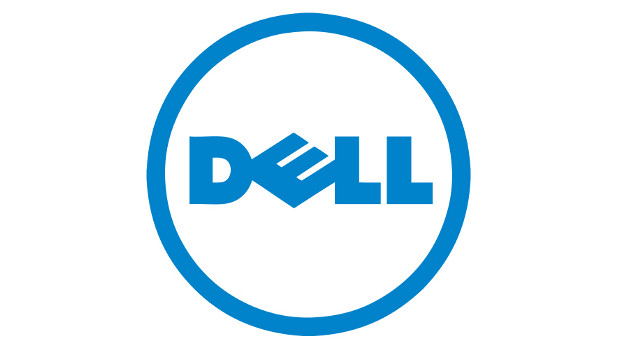In a survey commissioned by Dell and Intel of 800 IT decision makers across businesses of all sizes, 80% indicated that big data, mobility, BYOD, cloud computing and software defined everything will be key investment areas in the near future. All said that optimising applications is of critical importance. Nine out of 10 said that appropriate data centre management is important. Nearly two thirds (60%) said that they are running a mixture of traditional business and emerging applications, while seven out of 10 say that they have been negatively impacted by performance issues when running applications that require fast access to data.
To address these issues, Dell has developed the PowerEdge 13g server family.
Dell said that with the 13g family, application performance is boosted by moving the storage closer to compute resources and by enabling software defined storage. This allows up to 2.8 times more users, 3.5 times more transactions and 11 times X faster response time for online transaction processing with Microsoft SQL DB running the R730xd GlacierFire Data Storage.
TCO
There are also significant cost savings and reduced total cost of ownership (TCO) for the 13g line, says Dell, with simplified and streamlined lifecycle management processes. This means up to 10 times improvement in deployment time using iDRAC configuration profiles. There is seamless backward compatibility in server management with 12th generation server which, Dell says, protects customer investment.
The most intensive workloads are optimised, says Dell, in the complete, open architecture-based, ‘better-together’ portfolio. This features 3.6 times faster order processing with Fluid Cache for SAN on 13G and Oracle 12c, while there is double the performance of storage expansion with new low cost, high capacity Dell Storage MD1400 and MD1420 series designed for the 13g servers.
Directly tackling reported issues with SAN latency among various organisations, Dell Ireland’s enterprise marketing manager, Peter Trevaskis, the new server family will integrate well with existing infrastructure and services.
“This will play well with VMware’s vSAN and Microsoft’s Storage Spaces.”
“The R730xd has 100TB of storage available, which includes the 1.8” Flash, that drives intense IOPS for database applications and online transaction processing.”
“From a software defined perspective, we see it as being a major advantage in those areas where organisations want to move storage closer to the compute node,” said Trevaskis.
“When this is coupled with the introduction of Fluid Cache for SAN, it really changes things.”
Hot and cold
Trevaskis said that Dell had found that while there was significant growth in both ‘hot’ (regularly accessed) and cold (rarely accessed) data, there was very little growth in the middle.
“With Fluid Cache for SAN,” said Trevaskis, “what it means is that we can take a tier out of the SAN and put it in the server, or across a number of servers, and it is close to the compute node, with resilience too.”
This also provides a form of cache protection that becomes non-volatile, said Trevaskis.
The 13g family also has an option whereby the bezel of the server has a Near Field Communications (NFC) reader that allows an XML file to be uploaded directly to the server, allowing it to boot with a new configuration. This will help server management by reducing the time needed to physically identify individual servers and configure them. Logs, error messages and other such information can also be accessed in this manner.
Speaking to TechPro, Trevaskis was asked if there were any compromises with the new generation servers, in light of their accommodation of open standards
No compromise for openness
No, says Trevaskis. “We have a mantra of openness.”
The Dell approach is to allow full capability with open standard management tools, which are accommodated by plug-ins.
“We know we can’t go into an organisation and say if you use OpenManage you’ll get the full functionality, and throw out all of your other tools,” he said.
For further example, Trevaskis cites Dell’s stance on allowing the use of third party memory in servers, again with no loss of performance.
He went on to add that there is also a 30% saving for active memory and a 50% saving for power passive memory with the use of DDR4 memory. This is a huge saving over the lifetime of the system, which justifies the expense, argues Trevaskis.
This level of openness, when combined with the technical features of the new 13g range, argues Trevasksis, gives Dell a unique value proposition in the market.
Model range
The 13g range consists of five main systems.
The R730xd, the mainstream 2S/2U rack server, is designed for the scale out storage efficiency demanded by XaaS providers, Hadoop/Big Data users and co-location hosting, with optional offers in-box storage tiering.
The R730 is a mainstream 2S/2U rack server that offers high flexibility for data centres. It performs well in demanding environments, says Dell, including cloud, virtualisation, web tech and HPC. The 2 GPU option also enables medical imaging.
The R630 is a mainstream 2S/1U rack server that packs a lot in for 1U, providing highly flexible data centre scaling for database, and virtualisation environments, web tech and high performance computing.
The T630 is a mainstream 2S/5U rack-mount tower server with versatile configuration options deliver performance and scalability for mid-size offices; ROBO and data centres. Extensive internal storage and 4 GPUs enable workloads such as large databases, CRM, desktop virtualisation and medical imaging.
The M630 is a 2S blade server used with the 10U M1000e & VRTX shared infrastructure chassis. It is best suited for large data centres, says Dell, hosting virtualisation, or running business intelligence applications and large databases. It is an ideal building block for private clouds, say the makers.
For more information and the full specifications see here.
TechCentral Reporters







Subscribers 0
Fans 0
Followers 0
Followers